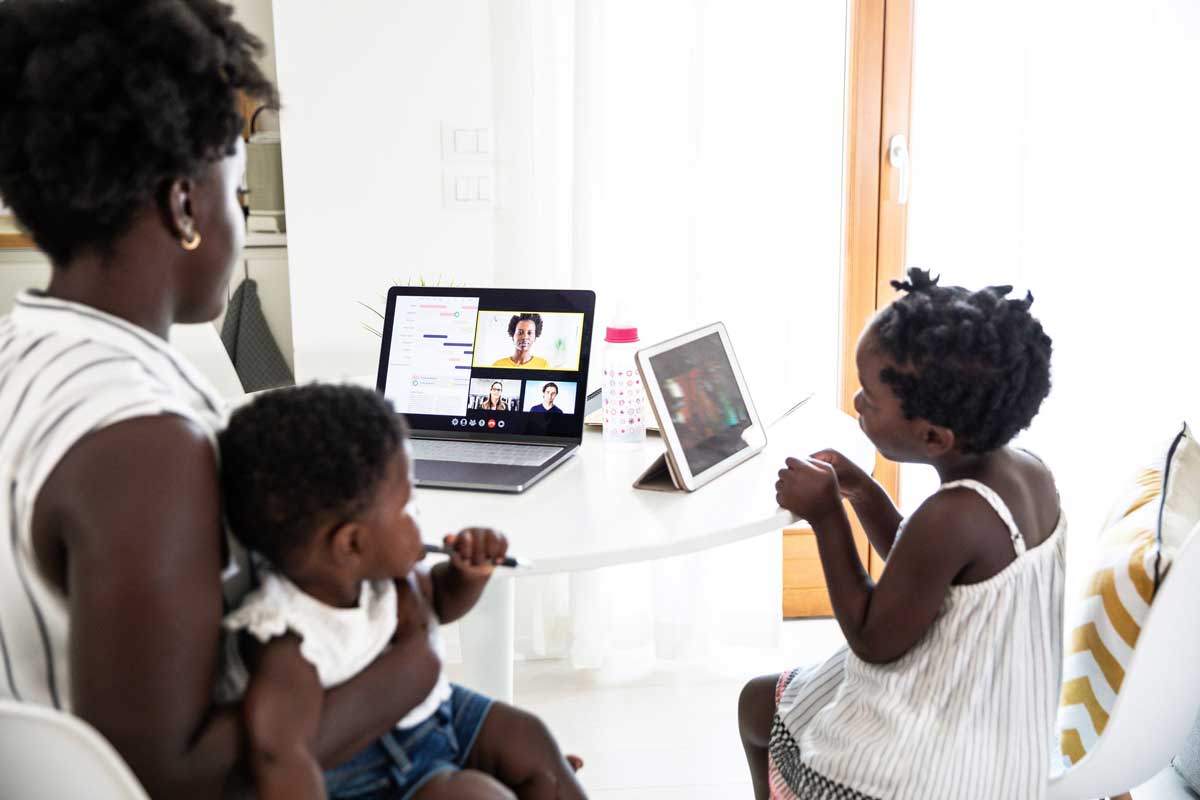 The COVID-19 pandemic added new challenges to families’ ability to address their children’s needs. Through focus groups and interviews with parents and guardians in Boston, Massachusetts, Dr. Robeson and Dr. Lucas confirmed research that indicates that (1) the experiences and needs of families regarding their children are quite distinct when comparing those who work from home with those who must return to their work sites, and (2) there is an uneven distribution of work by gender within the home.
The COVID-19 pandemic added new challenges to families’ ability to address their children’s needs. Through focus groups and interviews with parents and guardians in Boston, Massachusetts, Dr. Robeson and Dr. Lucas confirmed research that indicates that (1) the experiences and needs of families regarding their children are quite distinct when comparing those who work from home with those who must return to their work sites, and (2) there is an uneven distribution of work by gender within the home.
The researchers learned, as they describe in this book chapter, that the COVID-19 pandemic introduced new fears into households and greater stresses related to work/life balance, and that these stresses were amplified for families that have less access to important resources. This combination produced new constraints and pressures on families and children. Through looking at how families consider child care choices, one can see how these fears, stressors, and constraints contribute to home environments where parental burnout pervades and are worrisome when applied to children’s development.

